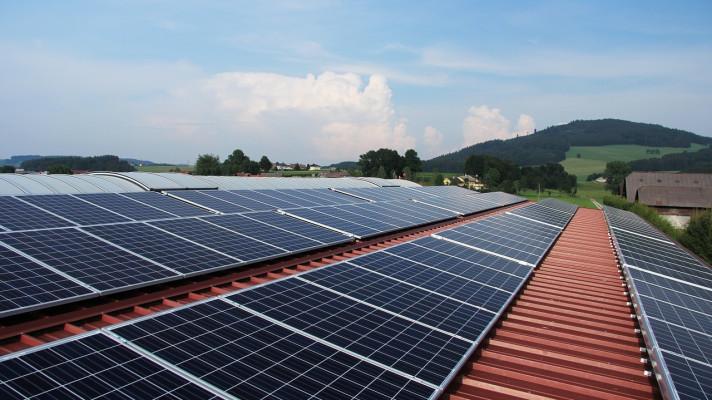Řecko by v rámci programu HELIOS mělo postavit další fotovoltaické parky (Greece - HELIOS PV Parks)
As Greece teeters on the edge of economic collapse, an ambitious new solar energy initiative could help pave the way toward better times. Under the plan known as Project Helios, electricity generated in Greece at a massive 3-10 Gigawatt (GW) PV power-plant would be exported to northern Europe - boosting the European solar sector and creating thousands of jobs in the beleaguered Mediterranean state.
Helios is backed by both the German and Greek governments and forms part of a broader strategy of growth.
Still at the conceptual stage, the project is backed by both the German and Greek governments and forms part of a broader strategy of growth, development and investment with other EU Member States to help re-launch the Greek economy.
"[The plan will] boost the Greek economy, secure and create jobs in Greece, support European PV suppliers and EPCs through the creation of additional market volume, and help European Member States to fulfil EU2020 targets for renewable energy adoption. [The] numbers I´ve heard are $27 billion in total, corresponding to 10 GW of installations until 2020," says Stefan de Haan, Principal Analyst, Photovoltaics at IHS iSuppli.
Too ambitious?
For Dr. Stefanos Melissopoulos, Corporate Vice President and President-Greece at Conergy, although the proposed project is ambitious, it is still feasible. However, his view is that the main stumbling block is the lack of an adequate infrastructure and energy grid.
"The grid needs to be strengthened, no doubt. Nevertheless, it would, even at its current stage, be able to take 2-3 GW installed power right away," he explains.
"This would be a realistic size to start with in my opinion. We have to keep in mind that `Helios´ [will be] realized ... over many years. This means there is some time for the reinforcement of interconnections between Greece and other European countries," he adds.
Meanwhile, de Haan predicts that pure installation will be `no problem.´ Given that the Greek PV market will reach around 400 MW in 2011, he argues that it is definitely feasible to install up to 10 GW by 2020.
"[The] grid is the major problem. If the electricity should be really physically exported, this would require significant investments into the grid," he says.
Finance
According to Melissopoulos, project financing is currently a major problem in Greece. However, because Helios is a long-term scheme, he predicts that potential investors may be `more flexible.´ He highlights a new initiative aimed at investment in the PV sector - supported by German banks, with funds from the European Investment Bank (EIB) and KfW (KreditanstaltfürWiederaufbau).
"This will include incentives for German companies, which either already, or plan to, invest in Greece, as well as for Greek-German joint ventures. Additionally, the European Commission has announced a plan to invest EUR9.1 billion in the development of trans-European infrastructure for the transport of energy," he explains.
More likely than Desertec?
For Melissopoulos, there are several reasons why Helios is a more realistic proposition than the Desertec project. Firstly, Greece is located within the boundaries of the EU - ensuring political stability. Secondly, it already has the infrastructure and existing energy grid. Thirdly, it is closer to the EU infrastructure for the transportation of energy and the shorter distance means that less energy will get lost en route.
"[Finally], in Greece we already have the know-how. There are already established European and German PV companies able to provide technical expertise," he says.
Nevertheless, de Haan remains sceptical about Project Helios - arguing that although support for PV in Greece is a good thing, it should not be done at the expense of PV in other parts of Europe.
"The technology is on the edge of being cost-competitive in Germany and it will soon be so in all other central-European countries. One of the key advantages of PV is local decentralized production of electricity [where] production is close to consumption. Why should one give up this inherent advantage?" he says.
Whether or not it is ultimately realised, is difficult to deny that the project has already gained a considerable amount of political momentum. However, it is likely to demand a sustained effort from European governments, businesses and financial institutions if it is ever to see the light of day.
ZDROJ:http://www.solarnovus.com/, shortened
